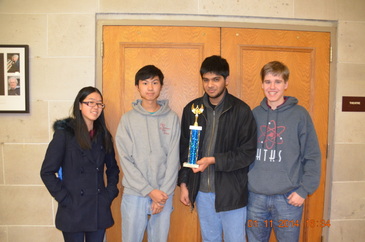Studying
So, you want to get better at quizbowl. Well, here's a lot of resources you can use!
General Study Methods
|
|
Subject-specific Study Methods
|
Science
Literature
|
Fine Arts
History
|

